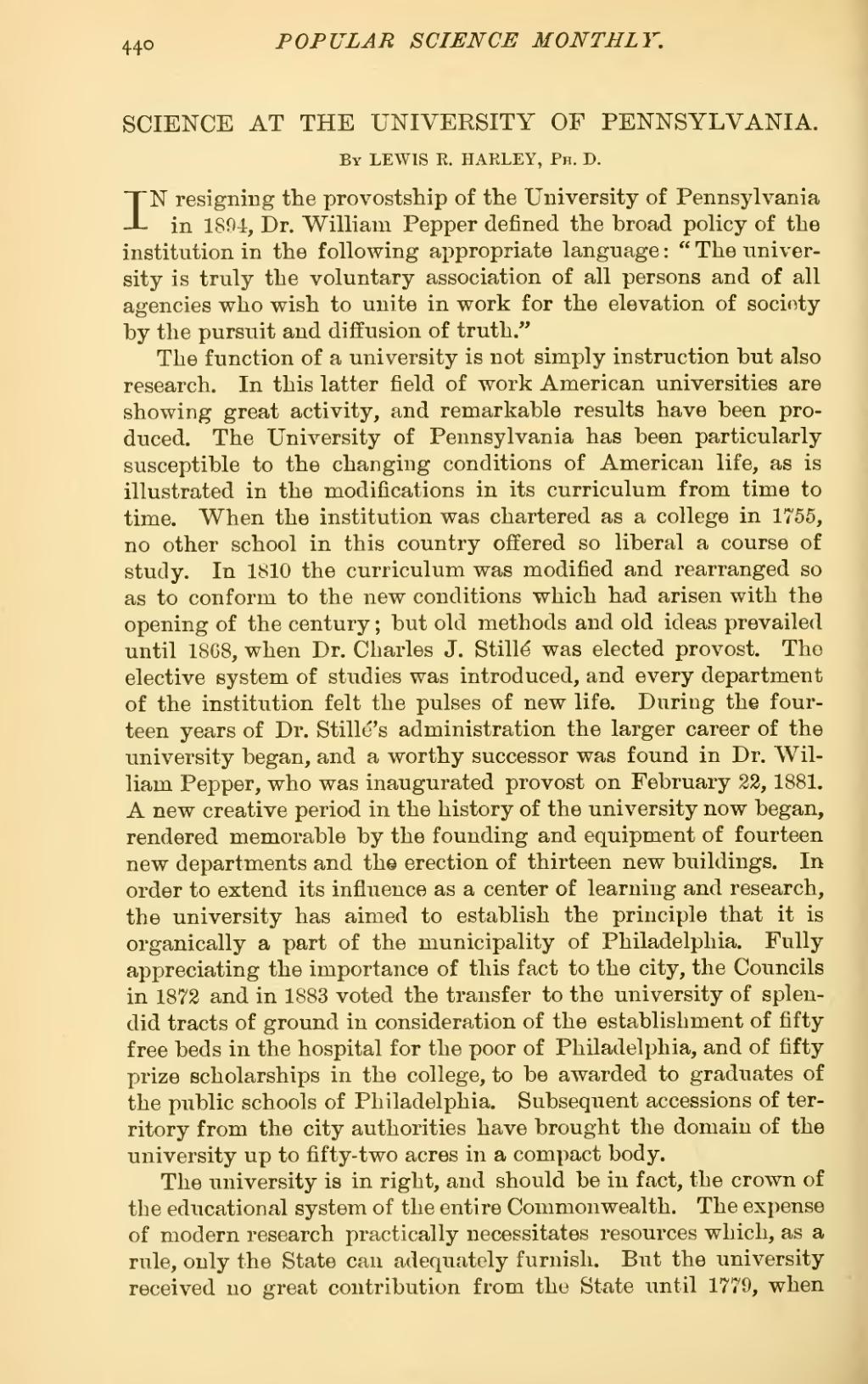| SCIENCE AT THE UNIVERSITY OF PENNSYLVANIA. |
By LEWIS R. HARLEY, Ph. D.
IN resigning the provostship of the University of Pennsylvania in 1894, Dr. William Pepper defined the broad policy of the institution in the following appropriate language: "The university is truly the voluntary association of all persons and of all agencies who wish to unite in work for the elevation of society by the pursuit and diffusion of truth."
The function of a university is not simply instruction but also research. In this latter field of work American universities are showing great activity, and remarkable results have been produced. The University of Pennsylvania has been particularly susceptible to the changing conditions of American life, as is illustrated in the modifications in its curriculum from time to time. When the institution was chartered as a college in 1755, no other school in this country offered so liberal a course of study. In 1810 the curriculum was modified and rearranged so as to conform to the new conditions which had arisen with the opening of the century; but old methods and old ideas prevailed until 1868, when Dr. Charles J. Stillé was elected provost. The elective system of studies was introduced, and every department of the institution felt the pulses of new life. During the fourteen years of Dr. Stillé's administration the larger career of the university began, and a worthy successor was found in Dr. William Pepper, who was inaugurated provost on February 22, 1881. A new creative period in the history of the university now began, rendered memorable by the founding and equipment of fourteen new departments and the erection of thirteen new buildings. In order to extend its influence as a center of learning and research, the university has aimed to establish the principle that it is organically a part of the municipality of Philadelphia. Fully appreciating the importance of this fact to the city, the Councils in 1872 and in 1883 voted the transfer to the university of splendid tracts of ground in consideration of the establishment of fifty free beds in the hospital for the poor of Philadelphia, and of fifty prize scholarships in the college, to be awarded to graduates of the public schools of Philadelphia. Subsequent accessions of territory from the city authorities have brought the domain of the university up to fifty-two acres in a compact body.
The university is in right, and should be in fact, the crown of the educational system of the entire Commonwealth. The expense of modern research practically necessitates resources which, as a rule, only the State can adequately furnish. But the university received no great contribution from the State until 1779, when

